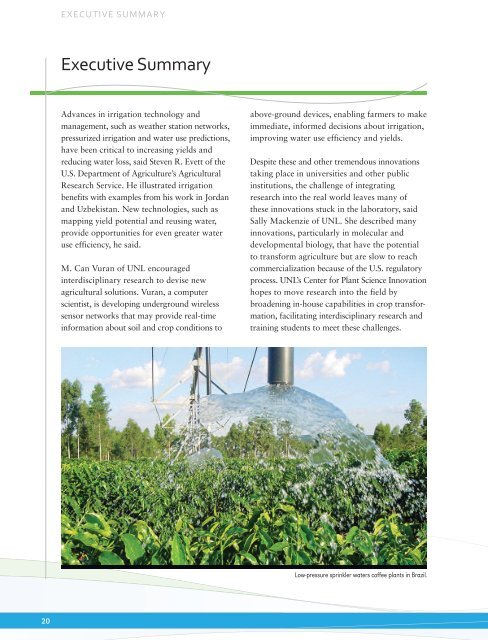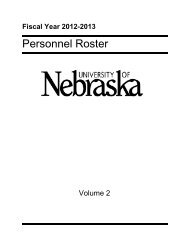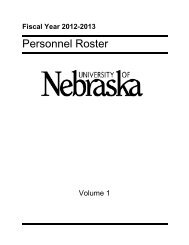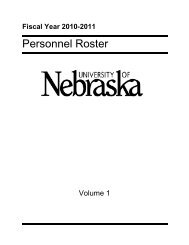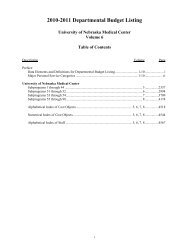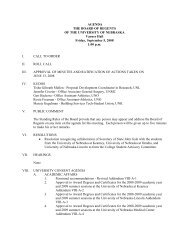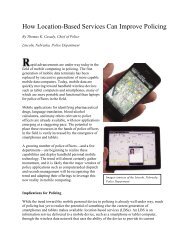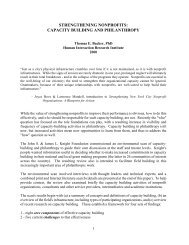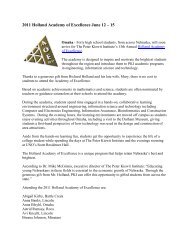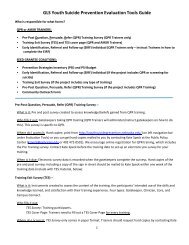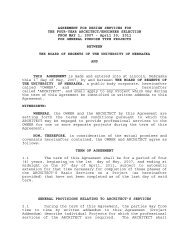Full Version - Water for Food Institute - University of Nebraska
Full Version - Water for Food Institute - University of Nebraska
Full Version - Water for Food Institute - University of Nebraska
Create successful ePaper yourself
Turn your PDF publications into a flip-book with our unique Google optimized e-Paper software.
20<br />
EXECUTIVE SUMMARY<br />
Executive Summary<br />
Advances in irrigation technology and<br />
management, such as weather station networks,<br />
pressurized irrigation and water use predictions,<br />
have been critical to increasing yields and<br />
reducing water loss, said Steven R. Evett <strong>of</strong> the<br />
U.S. Department <strong>of</strong> Agriculture’s Agricultural<br />
Research Service. He illustrated irrigation<br />
benefits with examples from his work in Jordan<br />
and Uzbekistan. New technologies, such as<br />
mapping yield potential and reusing water,<br />
provide opportunities <strong>for</strong> even greater water<br />
use efficiency, he said.<br />
M. Can Vuran <strong>of</strong> UNL encouraged<br />
interdisciplinary research to devise new<br />
agricultural solutions. Vuran, a computer<br />
scientist, is developing underground wireless<br />
sensor networks that may provide real-time<br />
in<strong>for</strong>mation about soil and crop conditions to<br />
above-ground devices, enabling farmers to make<br />
immediate, in<strong>for</strong>med decisions about irrigation,<br />
improving water use efficiency and yields.<br />
Despite these and other tremendous innovations<br />
taking place in universities and other public<br />
institutions, the challenge <strong>of</strong> integrating<br />
research into the real world leaves many <strong>of</strong><br />
these innovations stuck in the laboratory, said<br />
Sally Mackenzie <strong>of</strong> UNL. She described many<br />
innovations, particularly in molecular and<br />
developmental biology, that have the potential<br />
to trans<strong>for</strong>m agriculture but are slow to reach<br />
commercialization because <strong>of</strong> the U.S. regulatory<br />
process. UNL’s Center <strong>for</strong> Plant Science Innovation<br />
hopes to move research into the field by<br />
broadening in-house capabilities in crop trans<strong>for</strong>mation,<br />
facilitating interdisciplinary research and<br />
training students to meet these challenges.<br />
Low-pressure sprinkler waters c<strong>of</strong>fee plants in Brazil.


